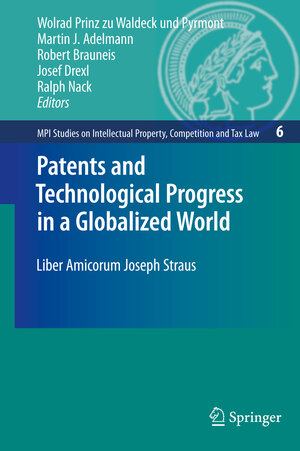
From the reviews:
“It contains 60 articles or essays written by colleagues and friends to celebrate the achievements of Professor Dr Joseph Straus’s illustrious career and to mark his 70th birthday. … The essays are equally of interest to fellow academics, practitioners, judges … students and policy-makers. … this is a very readable book which provided food for thought on a wide range of topics and deserves to find its way onto the library shelves of all who teach, research, practise or judge in intellectual property matters.” (Alison Firth, European Intellectual Property Review, Vol. 32 (4), 2010)
“Liber amicorum comprises 60 (!) articles written by friends, colleagues and pupils from more than 15 different countries in Asia, America and Europe. The articles address a wide range of legal, economic and policy perspectives on various challenges related to the title of the book … . address a remarkable variety of crucial issues in the complex debates shaping today’s technology related intellectual property law. … the book also features contributions discussing various procedural, multi-jurisdictional and public policy aspects from a more general perspective.” (Timo Minssen, Social Science Research Network, September, 2011)
Patents and Technological Progress in a Globalized World
Liber Amicorum Joseph Straus
herausgegeben von Wolrad Prinz zu Waldeck und Pyrmont, Martin J. Adelman, Robert Brauneis, Josef Drexl und Ralph NackIn the last two decades, accelerating technological progress, increasing economic globalization and the proliferation of international agreements have created new challenges for intellectual property law.
In this collection of articles in honor of Professor Joseph Straus, more than 60 scholars and practitioners from the Americas, Asia and Europe provide legal, economic and policy perspectives on these challenges, with a particular focus on the challenges facing the modern patent system. Among the many topics addressed are the rapid development of specific technical fields such as biotechnology, the relationship of exclusive rights and competition, and the application of territorially limited IP laws in cross-border scenarios.



